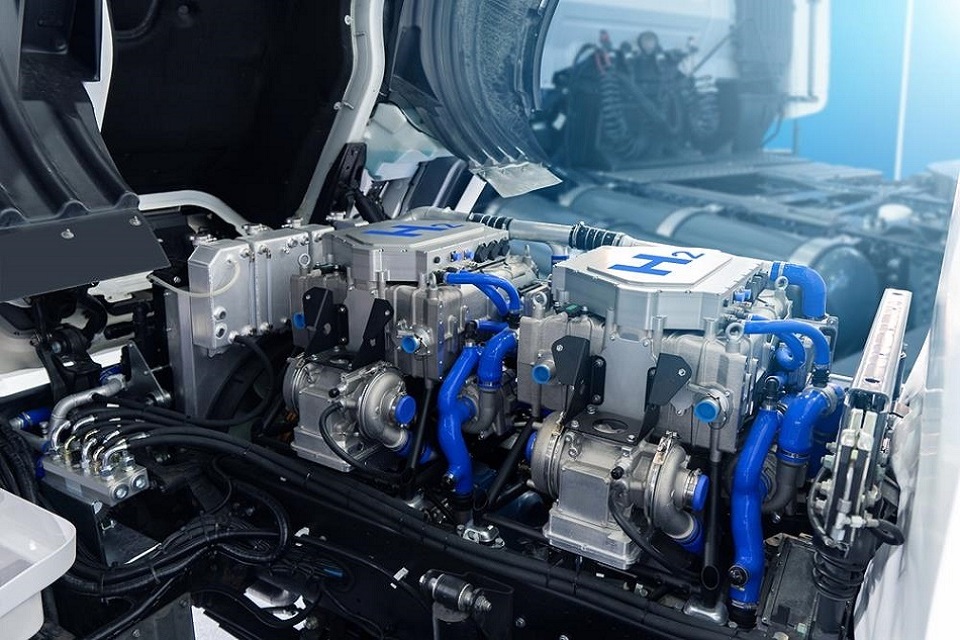Climate services for a Net Zero resilient world (CS-N0W): overview
Updated 8 February 2024
Introduction
Climate services for a Net Zero resilient world (CS-N0W) is a £5 million research programme that will use the latest scientific knowledge to inform UK climate policy and help us meet our global decarbonisation ambitions.
CS-N0W aims to enhance the scientific understanding of climate impacts, decarbonisation, climate action and improve accessibility to the UK’s climate data. It will contribute to evidence-based climate policy both in the UK and internationally, and strengthen the climate resilience of UK infrastructure, housing and communities.
The programme will run for 4 years, from 2021 to 2025.
Reports
Future Aviation Fuels

A report on future aviation fuels. This is an expert review of the global atmospheric impacts of potential future sustainable aviation fuels (SAFs). Decarbonisation of aviation is likely to follow multiple technological pathways, this review summarises the likely co-benefits and trade-offs of different approaches, focusing on air quality.
Read the report: Future Aviation Fuels
Hydrogen as a replacement fuel in diesel engines

A report reviewing the use of hydrogen as a replacement fuel in diesel engines and the interactions between hydrogen and the atmosphere. The work summarises the likely co-benefits and trade-offs of different technologies on air quality. The report will support teams across the Department for Energy Security and Net Zero to deliver pathways towards net zero.
Read the report: Hydrogen as a replacement fuel in diesel engines
Future role of measurements in tracking progress on greenhouse gas emissions reductions and targets

A report reviewing the future role of measurements in estimating greenhouse gas (GHG) emissions. This review provides expert analysis and a review of current and emerging technologies for monitoring GHG emissions in the UK. It answers several research questions set out by DESNZ officials and sets out immediate opportunities, challenges, and recommendations.
Read the report: Future role of measurements in tracking progress on greenhouse gas emissions reductions and targets
Overshoot briefing note
A short review of ‘overshoot’ pathways, a term used to describe a scenario in which global average temperature temporarily exceeds 1.5°C above pre-industrial levels before returning to below this warming level by 2100. The report sets out both the very large global investment in negative emissions technologies that would be required to return global temperatures to 1.5°C and the additional human and environment impacts of an overshoot.
Read the note: Overshoot briefing note
Climate impacts at the global, regional and country scale: literature review

A literature review and searchable inventory tool which provides evidence on the impacts of climate change.
Read the report: Climate impacts at the global, regional and country scale: literature review
Inventory of global climate impacts
The searchable inventory allows decision makers to search for the climate impacts to different countries that are predicted to occur for global warming of 1.5°C to 4°C above pre-industrial levels. It pulls in publicly available data from multiple reputable global databases comprised within an Excel tool.
View the inventory: Searchable inventory of global climate impacts
Presentations
CS-N0W research and analysis was presented at events at COP28 and AGU23. We have published recordings of these events here.
September 2023: AGU23
The world is facing a critical juncture where the actions we take this decade will decide the future climate we will face. Providing clear and actionable evidence to policymakers has never been so important for the fate of so many. The Intergovernmental Panel on Climate Change (IPCC), the United Nations body for assessing the science related to climate change, will be the primary route for getting this evidence to decision makers around the world. The IPCC will shortly agree the scope of its reports over the next few years.
In September 2023, the UK government hosted an international workshop, bringing policymakers and scientists from across the world together to understand the key questions that need to be answered ahead of 2030. This presentation highlights the key messages for researchers arising from that workshop.
Watch the video: Science-based policy making in the time of climate emergency: AGU23
1 December 2023: COP28 UK Pavilion discussion
CS-N0W hosted the opening event of the UK Pavilion at COP28, on How scientific assessment can drive policy action. This side event highlighted key findings from a 2-day, 180 person international workshop hosted by CS-N0W in September 2023. The event then engaged the audience to discuss the ideas generated at the workshop. The event was closed by Jim Skea (Chair of the Intergovernmental Panel on Climate Change), outlining his vision for actionability in the IPCC during its next assessment cycle.
Watch the video: How can scientific assessment drive climate action? An interactive discussion: UK Pavilion COP28
11 December 2023: COP28 UK Pavilion
At the closing event in the UK Pavilion at COP28, CS-N0W research on emissions from cooling in the UK was presented alongside research on the topic from other organisations. This event was opened by the Rt Hon Graham Stuart, Minister of State for Energy Security and Net Zero and Simon Birkebaek, Director of Energy Transition, COP28.
Watch the video: Sustainable Cooling in a Warming World: UK Pavilion COP28
Themes
The programme is structured around 4 research and analysis themes, as well as a fifth cross-cutting knowledge synthesis and translation theme.
Climate science support for international reports
CS-N0W will support the assessment, review and scoping of international reports such as the Intergovernmental Panel on Climate Change’s (IPCC) Sixth Assessment Report (AR6), AR7, and the United Nations Environment Programme’s (UNEP) Emissions Gap Reports. The current state of scientific knowledge will be synthesised to identify critical knowledge gaps, and insights will be provided for pressing UK policy questions.
Decarbonisation and global ambition
CS-N0W will deliver cutting-edge analysis on defined research topics, as well as key knowledge gaps not covered in the IPCC Reports. This includes the consequences of overshoot pathways, maritime emissions reduction pathways and the interactions between mitigation measures and the atmosphere to help inform international and domestic decarbonisation policy and processes.
Climate impacts at different spatial and temporal scales
CS-N0W will analyse the climate hazards facing natural and human systems in order to inform UK and international adaptation policies and plans. It will review existing and emerging evidence on the potential climate impacts at different geographical scales (global, regional and country), timescales (near, medium and long term) and levels of warming to deliver an assessment of the avoided climate impacts to the UK from limiting global warming to 1.5°C compared to higher levels of warming. It will also provide spatially granular estimates of the climate hazards facing UK infrastructure including water-intensive energy infrastructure, energy networks and housing.
Co-benefits of climate action
CS-N0W will examine the wide-ranging co-benefits of climate action to support governments to decarbonise and adapt to climate change alongside achieving other priorities. This will include the provision of credible assessments of mitigation co-benefits to health and the economy at global and regional scales, as well as the interlinkages, co-benefits and trade-offs between UK climate mitigation and UK climate adaptation options. This theme will also enhance understanding of the case for Net Zero both in the UK and internationally, as well as the critical importance of climate change adaptation and resilience.
Knowledge synthesis and translation
Under this theme the programme will provide a range of services, including:
- consistent monitoring of the climate science landscape and provision of on-call written briefings, science engagement events and other communications, all underpinned by detailed analysis and referencing
- an innovative data visualisation tool to interpret and investigate the climate impacts to water flows and knock-on impacts to the energy infrastructure and industrial sector
- a spatially granular tool for UK local authorities and Local Enterprise Partnerships that will enable users to visualise, interpret and apply data to inform local adaptation and decarbonisation planning, supporting users to understand uncertainties in projections and identify hotspots of climate risk
Who is involved
CS-N0W will be delivered by a consortium of world-leading research institutions from across the UK, including:
- Ricardo
- University College London (UCL)
- Tyndall Centre for Climate Change Research
- Institutes supported by the Natural Environment Research Council (NERC), including:
- British Antarctic Survey (BAS)
- British Geological Survey (BGS)
- National Centre for Atmospheric Science (NCAS)
- National Centre for Earth Observation (NCEO)
- National Oceanography Centre (NOC)
- Plymouth Marine Laboratory (PML)
- UK Centre for Ecology & Hydrology (UKCEH)
The consortium will work on behalf of the UK government and the following institutions and audiences:
- Department for Energy Security and Net Zero (DESNZ)
- Department for Transport (DfT)
- Department for Environment, Food and Rural Affairs (DEFRA)
- Environment Agency (EA)
- Ofgem
- Climate Change Committee (CCC)
- UK local enterprise partnerships and local authorities
- international policy makers
Contact us
If you have any questions about CS-N0W, contact the team at: climatescience@beis.gov.uk.
